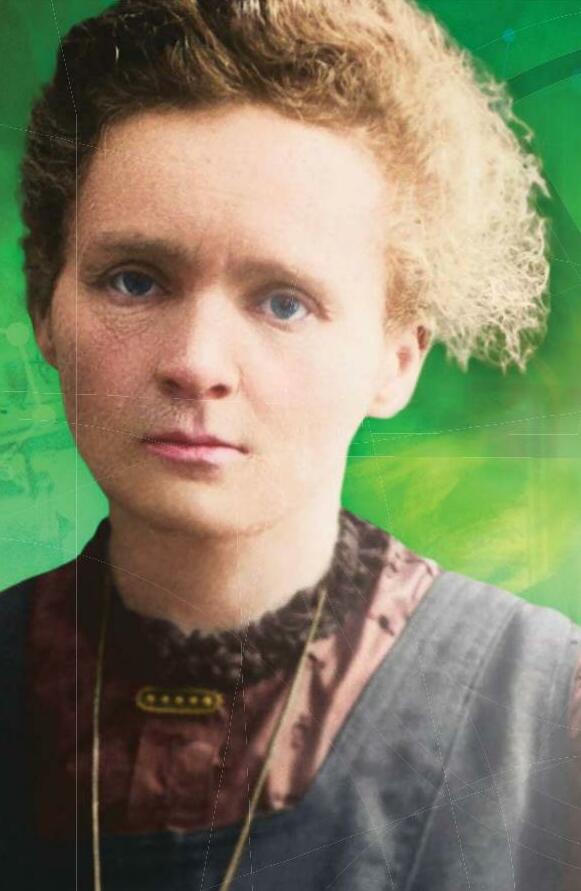
Marie Curie might have lived a long time ago, but she is still inspiring people today. This superstar scientist won two Nobel Prizes and discovered two new chemical elements. She was also one of the first researchers to investigate radioactivity and organised mobile X-ray units during the First World War (1914–1918). Curie did this just a few years after women were first allowed to study at universities. To mark the International Day of Women and Girls in Science on 11 February, let’s take a look at this remarkable scientist’s life story.
Secret schooling
In 1867, when Maria Sklodowska (as she was then known) was born, Poland was part of the Russian Empire. Around the world, women were only just beginning to be accepted into universities. The first French woman to gain a degree graduated in August 1861. In 1868, the first women were admitted to university in Britain. In Poland, however, women were not allowed to enrol in universities, so the young Maria took lessons with the Flying University, a secret college that gave lessons in changing locations such as private houses around the country.
This story is from the Issue 71 edition of The Week Junior Science+Nature UK.
Start your 7-day Magzter GOLD free trial to access thousands of curated premium stories, and 9,000+ magazines and newspapers.
Already a subscriber ? Sign In
This story is from the Issue 71 edition of The Week Junior Science+Nature UK.
Start your 7-day Magzter GOLD free trial to access thousands of curated premium stories, and 9,000+ magazines and newspapers.
Already a subscriber? Sign In

Are cats smarter than dogs?
They're the UK's top pets, but which is more intelligent? You decide!

Could people turn Mars into another Earth?
Sven Bilén explores how humans might make a home on another world.

FUNNY BY NATURE
Claire Karwowski tracks down the wackiest wildlife that's cracking up the animal kingdom.

WEIRD SCIENCE
A round-up of the strangest science stories from around the world.

Guardians of the forest
Meet the incredible people protecting the Amazon rainforest.

The Mariana Trench
Dive in to find out how far down the ocean goes and what it's really like at the bottom.

Megan McCubbin
Meet the zoologist trying to change people's views of animals with a bad rep.

MAX POWER
From the second you wake up in the morning, your way of life is made possible thanks to the amazing power of electricity.

Your heart has a "brain"
New research by scientists at Sweden, and Columbia University, in the US, suggests that your heart could have its own \"mini brain\".

Ethiopian wolves could be furry pollinators
Sweet-toothed Ethiopian wolves have been seen lapping up nectar have been seen happing up nectar from red hot poker flowers.